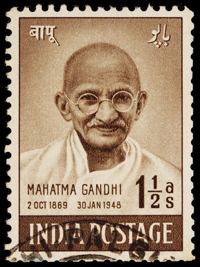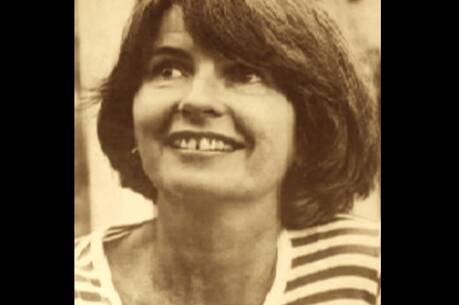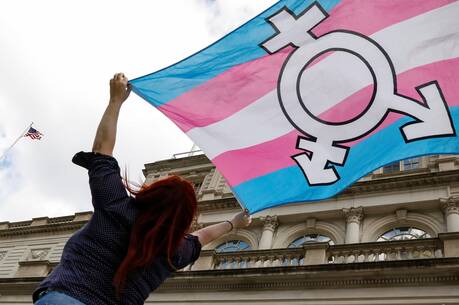In more ways than one the sad event of January 31 recalls Abraham Lincolns tragedy. Gandhis assassination occurs at a terribly critical moment in the history of the world. It comes as a frightful shock out of a clear sky. It is the death of a man of the highest moral prestige, and it leaves us with forebodings for the future.
Only in Gandhis case the forebodings are far greater, since the shot that was fired into his breast was not the work of an eccentric madman, not some poor benighted Booth or Czolgosz, but has already been identified with a deep conspiracy. It has revealed to an anxious world the existence of sources which are moved by the most destructive passions. Indeed the passion of nationalism is so deep that Gandhi himself was not completely liberated from it. In the character of this man, so enigmatic for the Western world, there were, so it seemed, two somewhat contradictory aspects. Innumerable sources through a generation of Indias history have heralded his deeply religious feeling and passionate devotion to his own ideals. "What I want to achieve, what I have been striving and planning to achieve these thirty years," wrote Gandhi in his Experiments with Truth, "is self-realization, to see God face to face, to attain Moksha." This was the Gandhi who could see no politics as worthy of the name unless they were inspired by religion. This was the Ghandi who wrote: "Because I believe in God, I believe in prayer. It is the surest means of consciousness of His presence; that is its meaning, its strength and its reward." This was the Gandhi of the solemn funeral·bier scattered with rose petals and adorned with flowers worked into religious emblems--the Hindu "saint."
But there was also a political Gandhi, a hero who proclaimed his equal love for all nations and races, but was nevertheless unable to liberate himself wholly from certain elements of a fanatical nationalism. It is a curious paradox that Gandhis syncretism, his typically Hindu rejection of any absolute, in practice bred a strange intolerance, an unfriendliness to the Christian missions, a blindness to the very nature and teachings of Christ, of whom he so frequently spoke but imperfectly understood.
Of the two aspects--the ideally religious and the subtly nationalistic--which were interlocked in Gandhis soul, which will win out in India itself? Though Gandhi sought for a blending of religion and politics, that synthesis was only imperfectly achieved. Respect for his memory will be a profound influence for the pacification of India, but when the first shock is over will it hold together a distracted people? A nationalism which for generations has been fostered against the British is now directed towards the Mahrattas who are accused of conspiring to put Gandhi to death. What guarantee is there that this same undiscriminating passion may not be unleashed against the Moslems who are now caught between these two conflicting tides?
Russia is not oblivious to the situation in India. Nothing is more distasteful to Indian Communists than the policy of nonviolence. Present communist strategy makes able use of nationalism and, when this use of nationalism is coupled with the hatred of religion, it plays smoothly into Soviet hands.
None can be so foolish as to prophesy the outcome of the terrible drama which is being enacted. It is a testimony to the oneness of the human race, the interdependence of all nations and peoples of the world, that a shot fired into a frail, wizened old man should be of immediate concern not only to all of Asia but to the whole world and its peace as well. May the assassination of Gandhi not prove another Sarajevo. May it be a harbinger of peace, of unity, of expiation for sin; and in the darkness of Indias hour of trial may it point the way to that ultimate light and truth for which India has always prayed.








